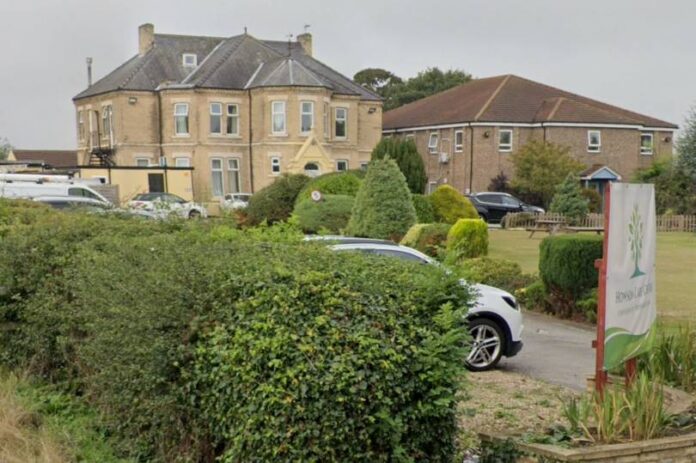A Lincolnshire Care Home Patient Died After A Nurse Gave Them Ten Times More Morphine Than Prescribed
A nurse who was arrested but had the case dropped is set to be struck off.
In a devastating incident that rocked the medical community, a Lincolnshire nurse, Nicola Sharp, administered a lethal dose of morphine to a patient, resulting in their death.
The incident occurred at the Howson Care Centre near Gainsborough on October 19, 2019. Nurse Nicola Sharp incorrectly administered 2.5ml of morphine to the patient, despite only 2.5mg being prescribed.
This staggering error led to the patient receiving a dose up to ten times higher than intended, ultimately proving fatal.
The alarm was raised when an on-call doctor examined the patient after they died and discovered the excessive amount of morphine in their system. Concerned by this shocking discovery, the doctor contacted the police.
Nurse Sharp was arrested and spent two days in custody before the police determined that there was no realistic chance of securing a conviction.
The inquest into the patient’s death took place in April 2021, with the coroner attributing the cause of death to the “effects of morphine” and concluding it as a case of “misadventure.”
Disturbingly, this was not an isolated incident for Nurse Sharp. In August 2020, she began working at another care home, only to leave in March 2023 following yet another medication administration error.
On this occasion, she mistakenly administered 19 units of insulin to a patient, instead of the prescribed four units. Fortunately, the patient did not suffer serious harm as a result of this error.
In light of these medication errors, a Nursing and Midwifery Council (NMC) hearing was conducted to determine Nurse Sharp’s fitness to continue working as a nurse.
The hearing, held last month, delved into the details of the incidents and their implications for patient safety.
The panel at the NMC hearing concluded that Nurse Sharp’s actions breached the code for professional standards of practice and behaviour.
They determined that her misconduct amounted to a serious departure from the standards expected of a registered nurse and brought the reputation of the nursing profession into disrepute.
The panel found that Nurse Sharp demonstrated no insight or remorse regarding her actions. She failed to provide any evidence of measures taken to strengthen her practice or prevent similar errors from occurring in the future.
This lack of accountability and responsibility further compounded the severity of her misconduct.
Given the gravity of the situation and the potential risk to patients, the NMC panel had no choice but to strike Nurse Sharp off the NMC register.
It said: “The panel determined that Patient A was caused direct unwarranted harm and Patient B was put at an unwarranted risk of harm as a result of Ms Sharp’s misconduct. Ms Sharp’s misconduct had breached the fundamental tenets of the nursing profession and therefore brought its reputation into disrepute.
“The panel is of the view that Ms Sharp has not demonstrated any insight or remorse in relation to her actions, nor has Ms Sharp evidenced any measures she has taken to strengthen her practise.”
They firmly believed that allowing her to continue practicing as a registered nurse would pose a significant concern to the public.
The panel noted that her actions were fundamentally incompatible with the standards expected of a healthcare professional and lacked the necessary insight into her failings.
In its findings, the panel concluded the charges amounted to misconduct. The panel went on to decide if Ms Sharp’s fitness to practice was impaired as a result of her conduct.
An interim suspension order has been put in place, giving Nurse Sharp the opportunity to appeal the decision. However, if she fails to appeal within 28 days of receiving the panel’s decision in writing, the suspension order will be replaced by a striking-off order.
This tragic incident serves as a stark reminder of the vital importance of accountability and patient safety within the healthcare industry.
Nurses, as frontline caregivers, hold a tremendous responsibility for the well-being and lives of their patients. It is crucial that they adhere to strict standards of practice and behaviour to ensure the highest level of care.
Incidents such as these not only have devastating consequences for the patients and their families but also tarnish the reputation of the nursing profession as a whole.
The trust and confidence patients place in healthcare professionals must never be taken for granted. Upholding the highest standards of professionalism, ethics, and patient-centred care is paramount to maintain the integrity of the nursing profession.
Healthcare organizations must take this tragic incident as an opportunity to reevaluate and strengthen their systems and processes.
Robust medication administration protocols, enhanced training and education, and thorough oversight are essential to prevent similar errors in the future.
Additionally, fostering a culture of open communication and reporting can encourage healthcare professionals to speak up and address potential issues proactively.
In the aftermath of such a devastating event, it is crucial for healthcare organizations to prioritize transparency, accountability, and patient-centred care.
Rebuilding trust and confidence in the nursing profession requires a concerted effort to ensure that incidents like this are thoroughly investigated, and appropriate measures are taken to prevent their recurrence.
